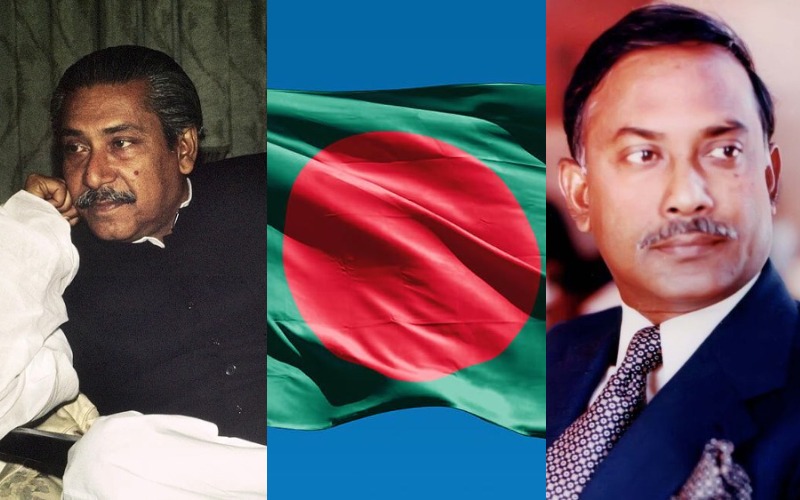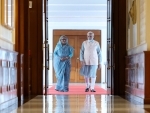Bangladesh

Ziaur Rahman was a 'psychopath', couldn't have killed Bangabandhu without American support: Lawrence Lifschultz
Titled 'Bangladesh 1975: Setting the clock back', the virtual discussion was hosted by the Centre for Research and Information (CRI) on Thursday night.
Apart from Lifschultz, a prominent investigative journalist, others who joined the discussion were Salil Tripathi, historian and visiting scholar at New York University; Nasreen Ahmed, academic and former Pro-VC at University of Dhaka; Mohammed Farashuddin, economist and former civil servant, visiting professor at East West University; and Syed Badrul Ahsan, journalist and biographer, fellow at Institute of Commonwealth Studies, University of London.

Lawrence Lifschultz. Photo: Screengrab from Facebook
It was moderated by Zafar Sobhan, editor of Dhaka Tribune.
Lifschultz said those involved in the killing would not act without Zia's backing, who in turn wouldn't be confident sans American help.
The senior journalist said weeks before Bangabandhu and his family's killing, Zia met with high ranking officials of the US embassy.
"We also know he was with the CIA station chief in a private meeting in Dhaka and we also know that there was tremendous tension within the American embassy... The American ambassador Davis Eugene Boster was very disturbed and stressed as he had given instructions that all the embassy staff would have no contact with anyone planning and thinking about [the] coup," he said.
According to Lifschultz, Zia met with the CIA station chief at a Bangladeshi businessman's house during a dinner that was purposely set up for the two to meet.
While Colonel Rashid and Colonel Faruk planned the murders, Zia kept the military at bay and prevented the plan from going wrong, he said.
Lifschultz said despite India and some parties in Bangladesh alleging a US hand in the killings, immediately after the coup, he was reluctant to believe so.
"Although I was open to hearing all points of view, that (US's involvement) was one I categorically rejected because in the context of American politics of that time it seemed quite far-fetched," he said.
"However, in mid-November of 1975 when I came in and I met a Bangladeshi acquaintance who I know... I never identified the person, and he sat me down and said he was not particularly friendly to Sheikh Mujib and there has been tension between Sheikh Mujib and himself.
"But he was disturbed that what had happened in the coup and the extent of murder and deaths. He said to me put the word conspiracy aside. Coups are planned," Lifschultz added.
He said the case needs to be investigated further.

Shedding light upon the twisted minds of the killers, Salil Tripathi, who came to Bangladesh as a young journalist in 1986 and interviewed of the self confessed killers, said, "In 1986, I had just finished my graduate studies in the US and I was back in India and came to Bangladesh essentially to figure out what was going on and what went wrong that was my question and why a country which started the trajectory of democracy, secularism and liberalism ended up having essentially one party state leading to the assassination of Sheikh Mujib, jail killing, coups and counter coups?"
Recalling his meeting with Colonel Faruk, Tripathi said, "So, I was curious about the man and I approached him when I was in Dhaka and he very readily agreed to meet me. Well-guarded house in a nice part of the city and guarded by security forces and so on and wearing a Pathani outfit which is not traditionally associated with folks of the east side of the country that itself was revealing. He told me he was in Libya. He was incredibly confident."
He said when asked why a 10-year-old Sheikh Russel had to be executed, Faruk told him "There would have been a dynasty and it would have gone on and on."
The killers, according to Tripathi, wanted to save Bangladesh from becoming India's vassal.
"We had to put an end. And we had to do everything to save Bangladesh because we know we’re the real freedom fighters and our freedom was taken away. It was becoming a vassal of India," Tripathi quoted Faruk.



